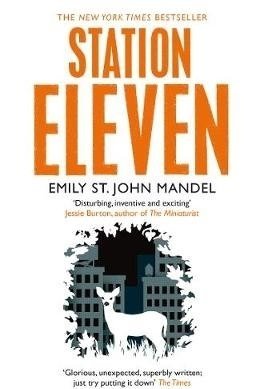
Music Theory and Practice by Musicopoulos
Education and Music
App
Combining structured music theory lessons with matching exercises is what sets Music Theory and...
Bob Mann (459 KP) rated David Brent: Life on the Road (2017) in Movies
Sep 29, 2021
Here in “Life on the Road” we join Brent 15 years later where he has taken a rung or two down the career ladder and is working as a sales rep for Lavachem, a sanitary goods manufacturer, also based in Slough.
But Brent still harbours a dream of making it big in the rock world with his middle-of-the-road band called ‘Foregone Conclusion (2)’. Gathering around him his ethnic rapper ‘friend’ Dom Johnson (Doc Brown) and a band of session musicians (who can’t stand him), Brent cashes in “several pensions” to fund a tour of the venues of Berkshire… or at least, those that will give stage time over to a “shite band”. As the tour delivers predictably diminishing returns, and no record-company interest (at least, not in him) Brent is forced to face his inner demons and some uncomfortable truths.
Bringing TV comedy characters to screen is fraught with difficulty, and few have successfully done it. Even legends like Morecambe and Wise struggled with a series of lacklustre films. Perhaps in recent times Steve Coogan’s Alan Partridge has come closest with “Alan Partridge – Alpha Papa” and indeed there are a lot of similarities visible between Partridge and Brent: both have extreme ego issues and self-centredness. But there are significant differences as well, for while Partridge is just an irritatingly loud and obnoxious minor-celebrity Brent – as this film makes much clearer – has real mental illness.
Brent - the sun shines out of his earhole.
Brent – the sun shines out of his earhole.
Is this therefore a comedy at all? Well, yes, but in a very black way. There are certainly moments of excellent humour, with the tattooing scene being a high-point. But the result of watching Brent’s progressive decline, with his nervous laugh as a constant ‘fingernails on chalk board’ reminder of his insecurity, results in a level of audience squirming that is palpable. Everything he does is perverse, from describing in excruciating detail every song before singing it, to spending his money on multiple hotel rooms when every gig is within the County of Berkshire.
As a black comedy its important that it doesn’t outstay its welcome, and at 96 minutes it doesn’t. However, the film lacks the courage of its own dark convictions, and unnecessarily switches tack in the last reel to provide a degree of redemption for Brent. Whilst ‘sweet’, it is also implausible given what’s happened before and I would have suspected the interference of the director in lightening the mood of the writer’s original intent. However, as Gervais is both writer and director, there is no such excuse. That’s a shame.
So, in summary, an uncomfortable watch that aligns appropriately with the high squirm factor of the original TV show. Prepare to laugh, but feel a bit guilty in doing so.
Hazel (1853 KP) rated Station Eleven in Books
May 30, 2017
The dystopian idea of a virus wiping out most of the world’s human inhabitants is not a new concept. It has be done and retold over and over again. Emily St. John Mandel’s invention of the Georgian Flu is no different from these. Brought to Canada and the USA by a passenger on a plane from Russia, the highly contagious virus spreads quickly from person to person, town to town, and once caught you are dead within forty-eight hours.
The difference between Station Eleven and other novels of apocalyptic themes is that the story takes place primarily in two time periods – pre-Georgian Flu and twenty years post-Georgian flu – rather than during the outbreak and the immediate days after (although there are a few scenes written within that timeframe). It is difficult to explain the storyline without giving too much away. Although the death of millions of people is a vital feature, it is the lives of the characters that are important. All the significant characters are in some way linked to one man, Arthur Leander, and, particularly in the case of one individual, a graphic novel titled Station Eleven.
The book opens in Toronto with Arthur, a Hollywood actor, starring in a stage production of King Lear. Despite the quick reaction of trainee paramedic Jeevan, Arthur dies of a heart attack after suddenly collapsing during the forth act. Then suddenly, that same night, the Georgian flu makes its first appearance in Canada. Despite this occurring right at the beginning, it is not the last the reader sees of Arthur. Throughout the story the author returns to Arthur, recounting scenes of his life from acting career to his three ex-wives and only child.
Twenty years after the Georgian flu, Kirsten Raymonde, who starred as a child in the same production of King Lear, is part of the Traveling Symphony: a group of actors and musicians walking from decaying-town-to-town performing a number of Shakespeare plays as they go. With her she carries two Station Eleven comics that Arthur gave her before he died – incidentally written and drawn by his first wife. Most people that the Symphony encounter are accommodating and are trying their best to live in a world of no electricity or health care, but then they meet a man who calls himself the Prophet. Believing that he has been given a duty by God to repopulate the world he preaches to the people telling them that everything happens for a reason, likening the epidemic to Noah’s flood in the Bible. However it soon becomes clear that he is a dangerous character.
In a way it is heartening to imagine that high culture (such as Shakespeare and orchestral music) survives in a world that has been destroyed. Shakespeare was born in a time before all the modern inventions relied upon today, and now, in this novel, it is once again an electricity-less era yet these historical things live on.
One problem with Station Eleven is that it is hard to pinpoint the exact plot line. There is the life story of Arthur Leander, his wives and a close friend. Then there is Kirsten living a completely different life. Nonetheless it is still an incredibly fascinating book. Although it flits between time periods it is thankfully not as confusing as some may imagine it would be.
Even though dystopian novels of this nature have been done before, Station Eleven is definitely a book to read; and through it all it poses the question of how you, the reader, would survive in such a world.
Hazel (1853 KP) rated Station Eleven in Books
Dec 7, 2018
The dystopian idea of a virus wiping out most of the world’s human inhabitants is not a new concept. It has be done and retold over and over again. Emily St. John Mandel’s invention of the Georgian Flu is no different from these. Brought to Canada and the USA by a passenger on a plane from Russia, the highly contagious virus spreads quickly from person to person, town to town, and once caught you are dead within forty-eight hours.
The difference between <i>Station Eleven</i> and other novels of apocalyptic themes is that the story takes place primarily in two time periods – pre-Georgian Flu and twenty years post-Georgian flu – rather than during the outbreak and the immediate days after (although there are a few scenes written within that timeframe). It is difficult to explain the storyline without giving too much away. Although the death of millions of people is a vital feature, it is the lives of the characters that are important. All the significant characters are in some way linked to one man, Arthur Leander, and, particularly in the case of one individual, a graphic novel titled <i>Station Eleven</i>.
The book opens in Toronto with Arthur, a Hollywood actor, starring in a stage production of <i>King Lear</i>. Despite the quick reaction of trainee paramedic Jeevan, Arthur dies of a heart attack after suddenly collapsing during the forth act. Then suddenly, that same night, the Georgian flu makes its first appearance in Canada. Despite this occurring right at the beginning, it is not the last the reader sees of Arthur. Throughout the story the author returns to Arthur, recounting scenes of his life from acting career to his three ex-wives and only child.
Twenty years after the Georgian flu, Kirsten Raymonde, who starred as a child in the same production of <i>King Lear</i>, is part of the Traveling Symphony: a group of actors and musicians walking from decaying-town-to-town performing a number of Shakespeare plays as they go. With her she carries two <i>Station Eleven</i> comics that Arthur gave her before he died – incidentally written and drawn by his first wife. Most people that the Symphony encounter are accommodating and are trying their best to live in a world of no electricity or health care, but then they meet a man who calls himself the Prophet. Believing that he has been given a duty by God to repopulate the world he preaches to the people telling them that everything happens for a reason, likening the epidemic to Noah’s flood in the Bible. However it soon becomes clear that he is a dangerous character.
In a way it is heartening to imagine that high culture (such as Shakespeare and orchestral music) survives in a world that has been destroyed. Shakespeare was born in a time before all the modern inventions relied upon today, and now, in this novel, it is once again an electricity-less era yet these historical things live on.
One problem with <i>Station Eleven</i> is that it is hard to pinpoint the exact plot line. There is the life story of Arthur Leander, his wives and a close friend. Then there is Kirsten living a completely different life. Nonetheless it is still an incredibly fascinating book. Although it flits between time periods it is thankfully not as confusing as some may imagine it would be.
Even though dystopian novels of this nature have been done before, <i>Station Eleven</i> is definitely a book to read; and through it all it poses the question of how you, the reader, would survive in such a world.

Anytune Pro+
Music and Education
App
New! Checkout ReFrame Audio Isolation - anytune.us/reframe Slow down music, choose the perfect...

iTablaPro - Tabla Tanpura Player
Music and Lifestyle
App
Come sit down for a session with our Tabla Pro. Experience virtuoso, realistic tabla playing, and...

KORG Gadget
Music and Entertainment
App
The ultimate mobile instruments collection on your iPad, iPad Pro and iPhone. KORG Gadget - the...

AmpliTube Acoustic
Music and Entertainment
App
THE NO#1 TONE STUDIO HAS GONE ACOUSTIC! CONNECT YOUR GUITAR, UKULELE OR OTHER INSTRUMENT TO YOUR...



